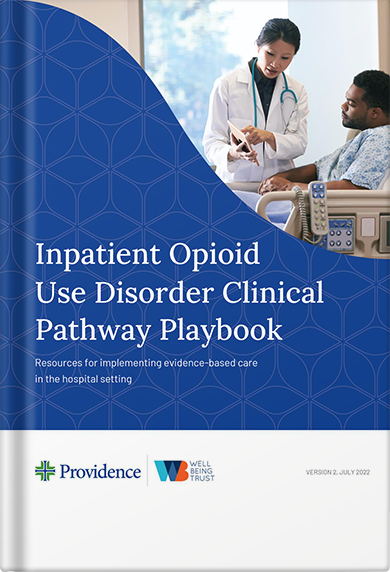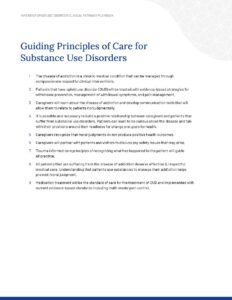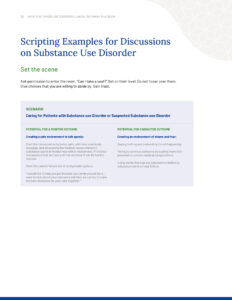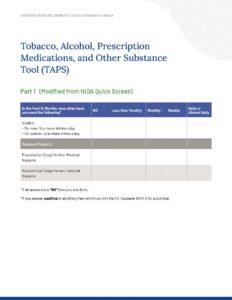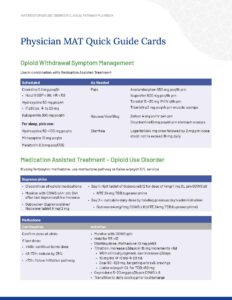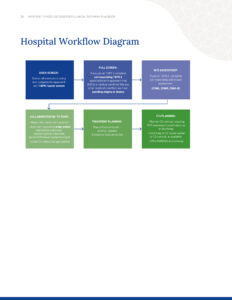Why It’s Needed
Hospitals need informed and compassionate long-term management strategies to provide effective care to patients with opioid use disorder, a chronic medical problem that can lead to dangerous medical complications and can be challenging to manage during an acute hospital stay. The common focus on “detoxing” can harm patients who are physically dependent on opioids and live with a fear of withdrawal symptoms. The urgency to relieve withdrawal symptoms overrides everything else, including engaging in care or working constructively with medical staff.
Even patients who successfully stop using opioids — whether during a hospital stay, in a treatment program or when incarcerated — most often relapse in weeks or months. Relapse after periods of abstinence leads to higher risk of a fatal overdose.
Goals
- Guide clinical teams so they can provide care that is safe, effective and compassionate to patients with opioid use disorder who have concurring medical, surgical or psychiatric issues.
- Improve the caregiver experience.
- Reduce variation in clinical care delivery across the system by equipping caregivers with the tools and best practices needed to provide evidence-based care for a complex and often-stigmatized disease.
- Improve caregivers’ perception and treatment of people with opioid use disorder and educate them about the disorder’s prevalence.
Guiding Principles
- The disease of addiction is a chronic medical condition that can be managed through compassionate, respectful clinical interventions.
- Patients who have opioid use disorder will be treated with evidence-based strategies for withdrawal prevention, management of withdrawal symptoms and pain management.
- Caregivers will learn about the disease of addiction and develop communication tools that will allow them to relate to patients nonjudgmentally.
- It is possible and necessary to build a positive relationship between caregivers and patients who suffer from substance use disorders. Patients can learn to be curious about the disease and talk with their providers around their readiness for change and goals for health.
- Caregivers recognize that moral judgments do not produce positive health outcomes.
- Caregivers will partner with patients and visitors to discuss any safety issues that may arise.
Selected Resources
Dive directly into the playbook for specific guidance on the following areas:
